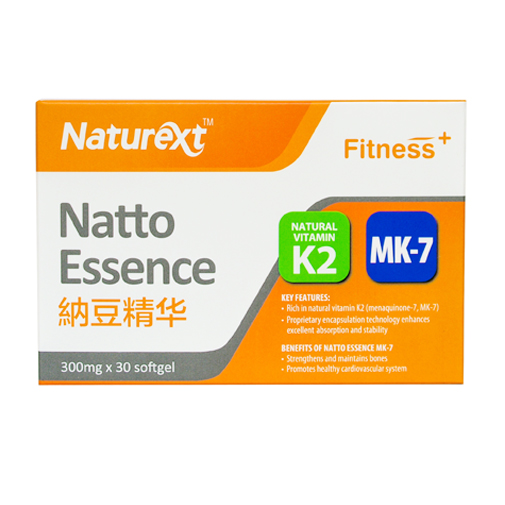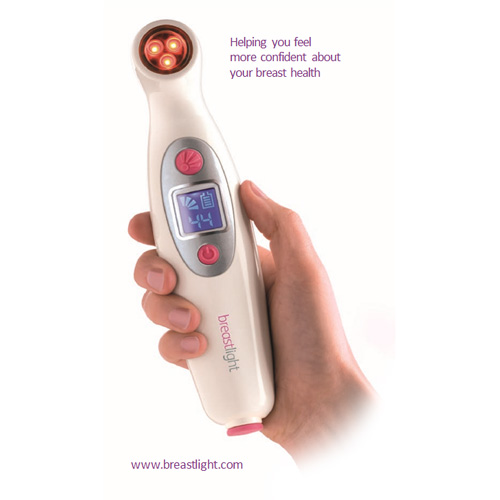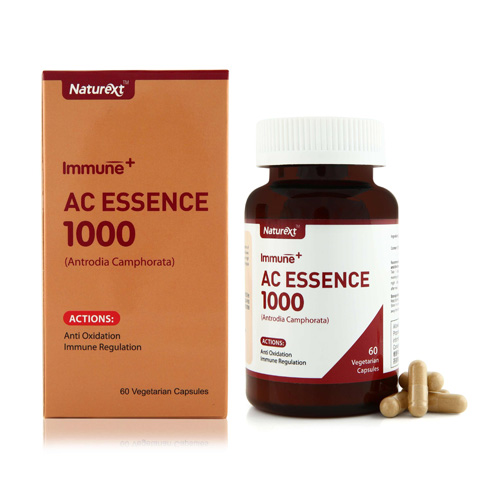Natto Essence™
$48.00
Natto Essence® is rich in natural vitamin K2, menaquinone-7 (MK-7) which strengthens and maintains bones and promotes healthy cardiocvascular system.
Product Description
fdsfsfsfsdfd
Natto Essence® is rich in natural vitamin K2, menaquinone-7 (MK-7):
– Strengthens and maintains bones
– Promotes healthy cardiocvascular system
– Patented encapsulation technology enhances excellent absorption and stability
Osteoporosis is a major public health problem worldwide, especially in an ageing society like Singapore. Osteoporosis increases risk of fractures that require hospitalization and may cause prolonged immobilization. In addition, many people who sustain a fracture do not return to their previous functional status and may require long term institutional care.
Vitamin K is a fat soluble vitamin that plays a critical role as a co-factor for the enzyme γ-glutamyl carboxylase, which is found in a wide variety of cells that catalyses the conversion of the amino acid glutamate into Gla.Gla proteins are important for normal blood coagulation and normality of bones and arteries.1
Vitamin K occurs in two biologically active forms: vitamin K1 (phylloquinone) and vitamin K2 (menaquinones, MK-4 to MK-10). Different menaquinones differ in their biological properties. Whereas menaquinone-4, MK-4 typically exhibit short half-life of 1 to 1.5 hour, long chain menaquinones like MK-7 and higher are characterized by half-lives of several days.2,3Natto contains the richest source of MK-7. One study demonstrated that while intake of menaquinone-4, MK-4 did not produce an increase of serum MK-4 levels, a nutritional dose of MK-7 in humans is well absorbed, producing a significant increase of serum MK-7 levels, with a long half-life of several days.4
Dietary Vitamin K1 (phylloquinone) is mainly found in green vegetables like spinach, broccoli and kale while vitamin K2 (menaquinone) is found in fermented food like natto, the Japanese fermented soybean. Apart from the well-known role of vitamin K1 in coagulation, studies have shown that vitamin K2 has various benefits, including improvement of bone health as well as reduction of vascular calcification and cardiovascular risk.
Prevention of osteoporosis and maintenance of strong bones
Vitamin K2 is widely used for the treatment of osteoporosis in Japan. It enhances Ɣ-carboxylation of bone glutamic acid residues and the secretion of osteocalcin, sustains the lumbar bone mineral density (BMD) and prevents osteoporotic fractures.5The efficacy of vitamin K2 on osteoporosis seems to be similar to that of active vitamin D3, and vitamin K deficiency may contribute to osteoporotic fractures.1,6-8
Various studies have shown that consumption of vitamin K2 has been associated with reduced bone loss in postmenopausal woen.9-11 The effect of vitamin K2 on the lumbar BMD may be greater in early postmenopausal (≤5 years after menopause) women than in late postmenopausal women. The reason for this remains unknown, but it is suggested that treatment with vitamin K2 should be started early in the postmenopausal period.12 Another study has shown that combined treatment of vitamin K2 and bisphosphonates (alendronate, risedronate) may be more efficacious in the prevention of new vertebral fractures than single treatment with bisphosphonate in postmenopausal women with osteoporosis.13
Prevention of vascular calcification and promoting a healthy heart
A high menaquinone intake over 48mg/day was associated with reduced coronary calcification among 600 middle-aged women.14 Studies have demonstrated that vitamin K2 intake is associated with reduced coronary calcification and is inversely correlated with cardiovascular disease and mortality.15,16 Long-chain menaquinones like MK-7 have the most beneficial effects on cardiovascular disease, with a mortality risk reduction of 9% for each 10 mg/day of extra intake.16No such association was found with the intake of vitamin K1. It is postulated that vitamin K deficiency might increase the amount of under-carboxylated, non-functional forms of Matrix-Gla Protein (MGP) and thereby lead to increased calcium deposition and cardiovascular disease.17-19
Safety of Vitamin K2
There is no incidence of reported toxicity for menaquinones.20,21Natto-derived MK-7 has been authorized for use in foods for particular nutritional uses, food supplements, and foods intended for the general population in the European Union.22
One animal study has shown that synthetic MK-7 is of low acute oral toxicity, where administration of a single oral dose up to 2000 mg/kg or for 90 days of oral administration of 10 mg/kg per day was not associated with any toxic side effects.23
Dietary menaquinones intake was not associated with stroke risk.24Studies in human volunteers demonstrate that natto-derived MK-7 has no effect on the clotting system in healthy individuals. Single doses of up to 1320 μg of MK-7/person had no effect on blood coagulation or fibrinolytic parameters (thromboelastograph pattern, PT, and APTT) in six healthy men.25 However, large doses of MK-7 may interact with anticoagulant therapy like warfarin.26
SUPPLEMENT FACTS
| Amount per serving | 300mg x 30 softgel / box |
| Ingredients | Vitamin K2 (Menaquinone-7, MK-7) 90mcg Vitamin D3 (Colecalciferol) 150IU Vitamin E (Alpha-tocopherol) 10mg Omega-3 (Fish Oil) 200mg |
| Administration | Take with or after meals |
| Storage | Store in a cool, dry place. Protect from light. |
| Contraindications |
Natto Essence is not suitable for patiets on warfarin therapy, or patients with hypercalcemia or metastatic calcification. |
REFERENCES
1. Vermeer C. Vitamin K: the effect on health beyond coagulation – an overview. Food Nutr Res. 2012; 56
2. Schurgers LJ, Vermeer C. Determination of phylloquinone and menaquinones in food: effect of food matrix on circulating vitamin K concentrations. Haemostasis 2000; 30: 298-307.
3. Schurgers LJ, Teunissen KJF, Hamulya´k K, Knapen MHJ, Vik H, Vermeer C. Vitamin K-containing dietary supplements: comparison of synthetic vitamin K1 and natto-derived menaquinone-7. Blood 2007; 109: 3279-83.
4. Sato T, Schurgers LJ, Uenishi K. Comparison of menaquinone-4 and menaquinone-7 bioavailability in healthy women. Nutr J. 2012 Nov 12;11:93
5. Shiraki M, Shiraki Y, Aoki C, Miura M. Vitamin K2 (menatetrenone) effectively prevents fractures and sustains lumbar bone mineral density in osteoporosis. J Bone Miner Res. 2000 Mar;15(3):515-21.
6. Szulc P, Chapuy MC, Meunier PJ, Delmas PD. Serum undercarboxylated osteocalcin is a marker of the risk of hip fracture in elderly women. J Clin Invest 1993; 91:1769-74.
7. Weber P. Management of osteoporosis: is there a role for vitamin K? Int J Vitam Nutr Res. 1997;67(5):350-6.
8. Feskanich D, Weber P, Willett WC, Rockett H, Booth SL, Colditz GA. Vitamin K intake and hip fractures in women: a prospective study. Am J Clin Nutr 1999;69:74-9.
9. Knapen MH, Drummen NE, Smit E, Vermeer C, Theuwissen E. Three-year low-dose menaquinone-7 supplementation helps decrease bone loss in healthy postmenopausalwomen. Osteoporos Int. 2013 Sep;24(9):2499-507.
10. Gajic-Veljanoski O, Bayoumi AM, Tomlinson G, Khan K, Cheung AM. Vitamin K supplementation for the primary prevention of osteoporotic fractures: is it cost-effective and is future research warranted? Osteoporos Int. 2012 Nov;23(11):2681-92.
11. Kanellakis S, Moschonis G, Tenta R, Schaafsma A, van den Heuvel EG, Papaioannou N, Lyritis G, Manios Y. Changes in parameters of bone metabolism in postmenopausal women following a 12-month intervention period using dairy products enriched with calcium, vitamin D, and phylloquinone (vitamin K(1)) or menaquinone-7 (vitamin K (2)): the Postmenopausal Health Study II. Calcif Tissue Int. 2012 Apr;90(4):251-62.
12. Iwamoto I, Kosha S, Noguchi S, Murakami M, Fujino T, Douchi T, Nagata Y. A longitudinal study of the effect of vitamin K2 on bone mineral density in postmenopausal women a comparative study with vitamin D3 and estrogen-progestin therapy. Maturitas. 1999 Jan 4;31(2):161-4.
13. Iwamoto J, Takeda T, Ichimura S. Combined treatment with vitamin K2 and bisphosphonate in postmenopausal women with osteoporosis. Yonsei Med J 2003;44:751-6.
14. Beulens JW, Bots ML, Atsma F, et al. (2009) High dietary menaquinone intake is associated with reduced coronary calcification. Atherosclerosis 203, 489–493.
15. Geleijnse JM, Vermeer C, Grobbee DE, Pols HAP, Schurgers LJ, Knapen MHJ, et al. Dietary intake of vitamin K-2 reduces the risk of cardiac events and aortic atherosclerosis: The Rotterdam Study. J Nutr 2004; 134: 3100-5
16. Gast GC, de Roos NM, Sluijs I, Bots ML, Beulens JW, Geleijnse JM, et al. A high menaquinone intake reduces the incidence of coronary heart disease. Nutr Metab Cardiovasc Dis 2009; 19: 504-10.
17. Spronk HM, Soute BA, Schurgers LJ, Cleutjens JP, Thijssen HH, De Mey JG, et al. Matrix Gla protein accumulates at the border of regions of calcification and normal tissue in the media of the arterial vessel wall. Biochem Biophys Res Commun 2001;289:485-90.
18. Flore R, Ponziani FR, Di Rienzo TA, Zocco MA, Flex A, Gerardino L, Lupascu A, Santoro L, Santoliquido A, Di Stasio E, Chierici E, Lanti A, Tondi P, Gasbarrini A. Something more to say about calcium homeostasis: the role of vitamin K2 in vascular calcification and osteoporosis. Eur Rev Med Pharmacol Sci. 2013 Sep;17(18):2433-40.
19. El Asmar MS, Naoum JJm Arbid EJ. Vitamin K dependent proteins and the role of vitamin K2 in the modulation of vascular calcification: a review. Oman Med J. 2014 May; 29(3): 172-7
20. National Research Council (2000) Dietary Reference Intakes for Vitamin A, Vitamin K, Arsenic, Boron, Chromium, Copper, Iodine, Iron, Manganese, Molybdenum, Nickel, Silicon, Vanadium, and Zinc. Washington, DC: National Academy Press.
21. Bresson JL, Flynn A, Heinonen M, et al. (2008) Vitamin K2 added for nutritional purpose in foods for particular nutritional uses, food supplements and foods intended for the general population. EFSA J 822, 1–31.
22. EFSA. 2008. Vitamin K2 added for nutritional purposes in foods for particular nutritional uses, food supplements and foods intended for the general population and vitamin K2 as a source of vitamin K added for nutritional purposes to foodstuffs, in the context of Regulation (EC) No. 258/971, Scientific Opinion of the Panel on Dietetic Products, Nutrition and Allergies. EFSA J 822:1–31.
23. Pucaj K, Rasmussen H, Moller M, et al. (2011) Safety and toxicological evaluation of a synthetic vitamin K2, menaquinone-7. Toxicol Mech Methods 21, 520–532.
24. Vissers LE, Dalmeijer GW, Boer JM, Monique Verschuren WM, van der Schouw YT, Beulens JW. Intake of dietary phylloquinone and menaquinones and risk of stroke. J Am Heart Assoc. 2013 Dec 10;2(6):e000455.
25. Sumi H. 1999. Accumulation of vitamin K (menaquinone-7) in plasma after ingestion of natto and natto bacilli (B. subtilis natto). Food Sci Technol Res 5:48–50.
26. Schurgers LJ, Teunissen KJ, Hamulyak K, Knapen MH, Vik H, Vermeer C. 2007. Vitamin K-containing dietary supplements: comparison of synthetic vitamin K1 and natto-derived menaquinone-7. Blood 109:3279–3283.



